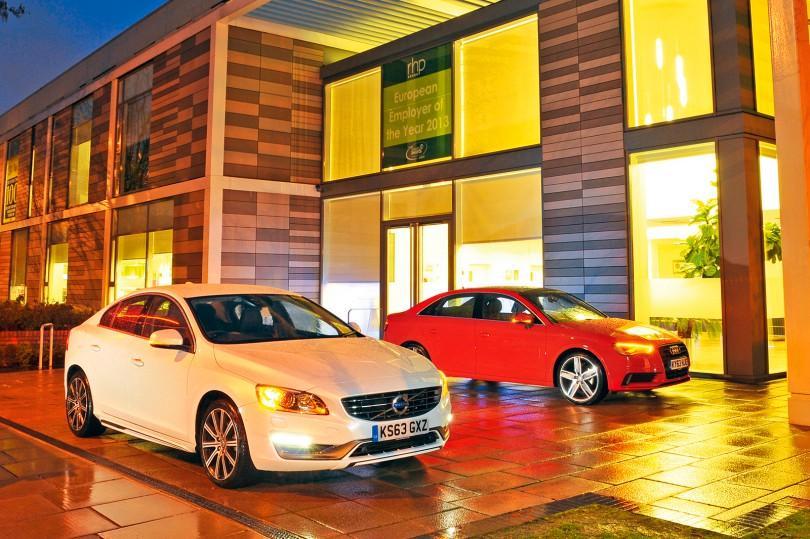Company cars – great perk or great expense?
Here’s how to decide what to take for the least cost

Your support helps us to tell the story
From reproductive rights to climate change to Big Tech, The Independent is on the ground when the story is developing. Whether it's investigating the financials of Elon Musk's pro-Trump PAC or producing our latest documentary, 'The A Word', which shines a light on the American women fighting for reproductive rights, we know how important it is to parse out the facts from the messaging.
At such a critical moment in US history, we need reporters on the ground. Your donation allows us to keep sending journalists to speak to both sides of the story.
The Independent is trusted by Americans across the entire political spectrum. And unlike many other quality news outlets, we choose not to lock Americans out of our reporting and analysis with paywalls. We believe quality journalism should be available to everyone, paid for by those who can afford it.
Your support makes all the difference.If your job requires it, you may well be offered a company car. Sometimes you’ll get a choice. There may well be limits placed on this, in terms of emissions or safety ratings, since the company will be keen to keep costs down – that can apply even if you’re a fairly senior exec. But what decisions should you make, within what is available to you? Which ones will cost you the most or the least? Here’s what to look out for and consider.
Calculating company car tax
Benefit in Kind – BIK – is one of the main downsides to a company car. It’s a tax based on the fact that you will use the car for personal use – like weekends and evenings, even if you use the car for company use during the day. That is a benefit in kind, and the rate of tax depends on the car’s P11D price, itself depending on the car’s CO2 emissions.
Since the P11D price is the value of the car’s list price plus VAT, plus delivery and all options over £100, you can work out the P11D price. Multiply that by the percentage that applies to the CO2 emissions, then multiply that by your income tax band – 20% or 40%.
Fuel costs
If you don’t do that many private miles it would be worth agreeing to pay for those yourself. If your company pays for them then that’s another benefit in kind, and will be taxed again. Give some thought as to whether you should choose a diesel or petrol or a hybrid, or a full electric vehicle. And bear in mind that manufacturers’ claims about fuel consumption, particularly for hybrids, is based on the official testing procedure they have to follow and are normally all but impossible to replicate in the real world.
Obviously the system is set up to push you towards getting a car with fewer emissions rather than plonking for a V8 because you like the noise. Since there is a sliding scale of costs, it’s easy to understand why diesel, then hybrid and electric vehicles, have become more popular. Since governments and the EU are hardly infallible, they have now introduced a 3% surcharge for diesels, as a further ‘nudge’ away from diesels – the same engines they were championing a few years ago. However, ultra-low emission and electric cars have all benefited by low tax rates.
Company car tax bands
Here are the figures for the tax bands, with the diesel rates in brackets.
0-50g/km – 9% (10%)
51-75g/km – 13% (14%)
76-94g/km – 17% (20%)
95-99g/km – 18% (21%)
100-104g/km – 19% (22%)
105-109g/km – 20% (23%)
110-114g/km – 21% (24%)
115-119g/km – 22% (25%)
120-124g/km – 23% (26%)
125-129g/km – 24% (27%)
130-134g/km – 25% (28%)
135-139g/km – 26% (29%)
140-144g/km – 27% (30%)
145-149g/km – 28% (31%)
150-154g/km – 29% (32%)
155-159g/km – 30% (33%)
160-164g/km – 31% (34%)
165-169g/km – 32% (35%)
170-174g/km – 33% (36%)
175-179g/km – 34% (37%)
180-184g/km – 35% (37%)
185-189g/km – 36% (37%)
190g/km or more - 37% (37%)
Company car or cash?
So should you accept the company car or should you take a cash alternative? Here are the pros and cons.
Dash for cash
If you buy your own car you can get what you want – remember, even senior personnel will be restricted by company rules. You’ll have an asset to sell at some point and you’re free to buy the type, brand or whatever vehicle you wish. You’ll be given a cash allowance to help fund the purchase and you won’t be paying all that BIK tax. On the other hand, that cash allowance counts as part of your salary so you’ll pay income tax on it.
Take the company car
There are some attractive pros. You’ll get a new car every few years. You won’t have to worry about servicing, insurance, breakdown, maintenance or all those other expensive and time-consuming aspects of car ownership. On the other hand, you’ll be paying tax, potentially a lot of tax, for the pleasure. Does it stack up? You’ll have to do the maths.
Graham Scott is a writer for WhatCar.
Join our commenting forum
Join thought-provoking conversations, follow other Independent readers and see their replies
Comments